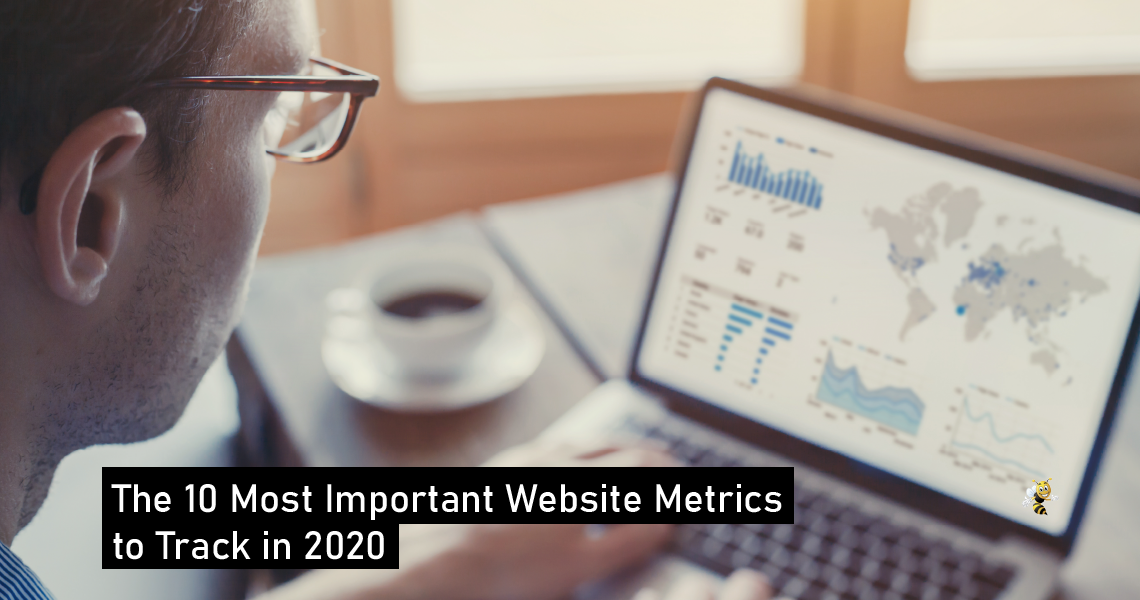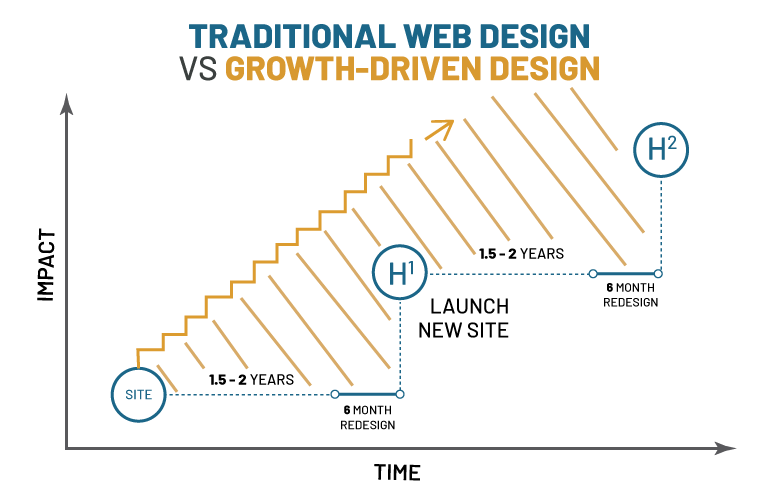The 10 Most Important Website Metrics to Track in 2020

Listen to the Blog
Because the internet and user behavior constantly changes, your website has to adapt just as frequently to keep up. What doesn’t change is the need to measure your website’s performance. However, the specific metrics you want to measure change over time as the internet continuously evolves.
If you’re not sure what metrics are the most critical to pay attention to, these are the most important website metrics to track in 2020. All of these metrics can be found with Google Analytics. You can also use our free SEO Audit Tool to pull these metrics automatically.
Page Load Speed
If your pages load slowly your users will bolt and likely not return to your site again. Ideally, your website should load in under 2 seconds. As load speed increases, the chances of your audience leaving rises as well.
Total Website Traffic
A high-level metric that shows your overall site health and SEO strength is your total website traffic. Tracking this on a month to month basis, during specific peak business events will show trends of how and when users interact with your site. A yearly comparison is also helpful to measure growth over time and track seasonal trends annually.
Conversion Rate
Conversion rate is the number of people who complete a desired action (such as filling out a form) out of your total number of website visitors. Track your conversion rate in Google Analytics, across the ads you are currently running or through the forms filled out on your site. Measure your conversions based on your marketing goals.
Keyword Rankings
Keyword building is a slow process, but extremely important so that users can find you when they search for those keywords. Measure your keyword rankings a couple times a month and look for increases, big jumps or lags. You can also use tools like SEMrush to compare your rankings to your competitors.
Traffic Source/Medium
This metric shows where your website users are coming from. It also gives you a snapshot of how well your organic search traffic is working. Organic Google traffic should be your number one driver of traffic, but it is also helpful to see how effective your marketing efforts are.
Click-Through Rate (CTR)
The click-through rate is calculated by clicks divided by impressions. In Google Analytics, this can be used to gauge how well your keywords and ads are performing.
Bounce Rate
Bounce rate is the percentage of visitors to a who navigate away (bounce out) from your site after only viewing one page. What a "good" bounce rate looks like will vary based on the page type and goal. Generally speaking, a site-wide bounce rate should be 61.04% for a B2B site, 54.24$ for a B2C site and 52.36% for a hybrid site (source).
Pages Per Session
This metric is important for the high-level overview of the average number of pages users visit per session. This is a good indicator of engagement because it shows you if your visitors found many pages interesting and easy to navigate.
Average Session Duration
This metric is exactly what it sounds like - it shows you the average length of each session. Session duration is another good barometer of engagement. Generally speaking, the longer users are on your site the more likely they will convert.
Users vs. New Users
Be sure to track your user trends month over month. Not only, total users, but also how much of your traffic is new users versus returning visitors. It's important to consider the length of your sales cycle: many repeat visitors with conversions suggests that your audience likes to do research before contacting you; whereas a majority of new users and few conversions suggests users may not be finding the information they're looking for.
The bottom line is that your page has to load fast, the links have to work (no 404s), and the architecture has to be sound. Your content has to address queries before the user has to ask to keep them on the page longer. Tools like Google Analytics and SEMrush pull data together so you can track, analyze, and correct any errors.
Most users won’t return to a site that doesn’t perform well, or if they have had a bad experience, so make the most of your site: Establish, optimize, and then expand your website. Growth Driven Design (GDD) is an approach that incorporates monthly analysis into continuous improvement to keep your website fresh and engaging for your users.
What is Growth-Driven Web Design?
Traditional web design is broken. The struggle with traditional design is that almost immediately after a site is launched, the design and content begins to grow stale. The internet is an ever-evolving beast, and when your site doesn’t evolve along with it, it ages quickly. Many business owners are trapped in this cycle:
Spend 6-8 months redesigning a new website —> It looks good —> Don’t redesign for 3-5 years —> It starts looking bad —> Redesign site again —> Repeat
That’s where Growth-Driven Web Design (GDD) steps in. With GDD, websites are continuously updated every month, with substantive changes to keep your users engaged and moving through the buyer’s journey.

Growth-Driven Web Design breaks out of the mold of traditional design to take a more proactive approach. It focuses on converting leads and staying on top of design trends. This way, you can catch and resolve any problems immediately, before they start negatively impacting your website.
* * *
Get Better Results with Growth-Driven Web Design - Free eBook
Growth-Driven Web Design is not only easier on your team and wallet- continuous updates and improvements to your website will keep your customers coming back for more. This free eBook goes over Growth-Driven Web Design and what you need to know to get started.
Download Our FREE Growth-Driven Web Design eBook
BizzyWeb is a Minneapolis-based digital marketing and web design agency that helps companies get the high-quality leads they need to grow and thrive. Our tactics include inbound marketing, SEO, advertising, web design, content creation and sales automation. We are an accredited HubSpot Platinum Partner and we offer full-service HubSpot onboarding, enablement and strategy for new and current users.




